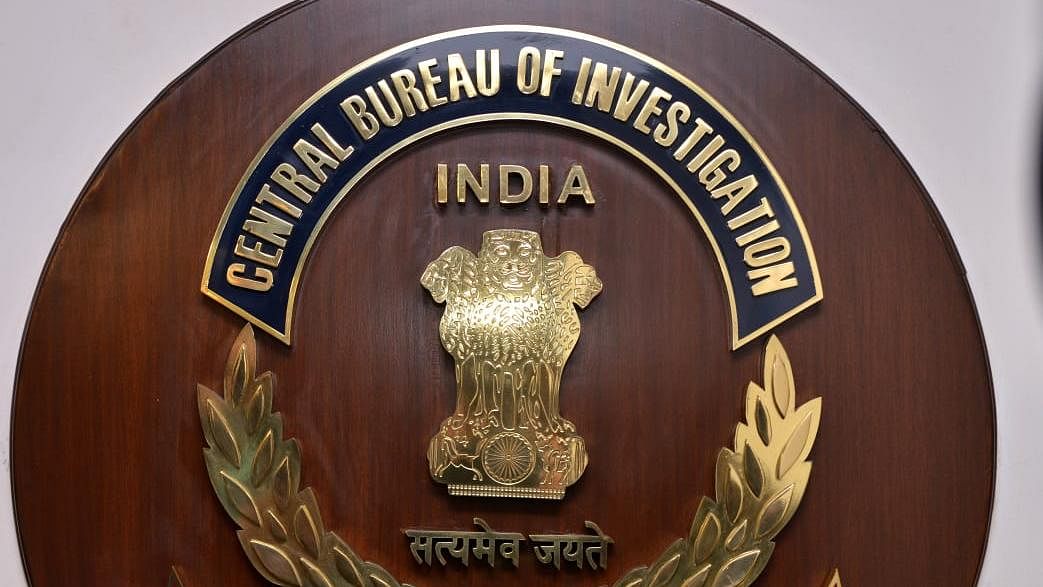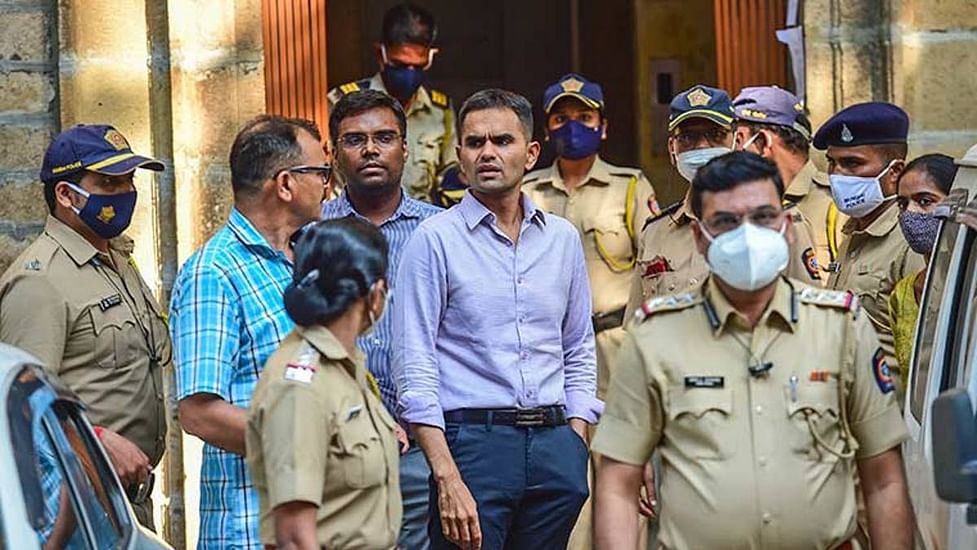A recent vigilance report by the Narcotics Control Bureau (NCB) has shed light on various aspects of Sameer Wankhede’s activities during his tenure as the Mumbai zone chief of the NCB. Wankhede, who has been involved in high-profile cases including those of Rhea Chakraborty and Aryan Khan, is currently under investigation by the Central Bureau of Investigation (CBI)  for alleged bribery. The vigilance report has revealed intriguing details about Wankhede’s foreign trips and expenditures, adding to the controversy surrounding his actions.
for alleged bribery. The vigilance report has revealed intriguing details about Wankhede’s foreign trips and expenditures, adding to the controversy surrounding his actions.
Unveiling the Vigilance Report: Revelations Surrounding Sameer Wankhede’s Foreign Visits and Expenses
Key findings of the vigilance report include:
1. Foreign Trips: Between 2017 and 2021, Sameer Wankhede took six private foreign trips, visiting countries such as the UK, Ireland, Portugal, South Africa, and the Maldives.
2. Expenditure Discrepancies: The report states that Wankhede claimed an expenditure of ₹8.75 lakh for these trips, which is deemed significantly lower than the actual expenses incurred.
3. London Trip: During a 19-day trip to London, Wankhede allegedly declared expenses of ₹1 lakh, stating that he stayed with relatives. However, doubts have been raised regarding the authenticity of this claim.
4. Luxury Watch Purchase: It is alleged that Wankhede purchased a Rolex Gold watch valued at ₹17,40,000, although the actual price of the watch was ₹22,05,000. Furthermore, multiple invoices for the same watch have reportedly surfaced.
5. Property Ownership: The vigilance report also raises questions about Wankhede’s property holdings, suggesting that he owns four flats in Mumbai. Wankhede, however, has stated that he possesses six properties in Mumbai, all of which were inherited.
Pooja Dadlani’s Statement:
The CBI’s FIR against Sameer Wankhede, which accuses him of demanding a bribe of ₹25 crore from Shah Rukh Khan, is reportedly based on a statement provided by Shah Rukh Khan’s manager, Pooja Dadlani. According to reports, Dadlani allegedly handed over a bag containing ₹50 lakh soon after the raid at the Cordelia cruise ship, where Aryan Khan was arrested.
The CBI FIR further alleges that Wankhede allowed KP Gosavi, an independent witness, a free hand in the Aryan Khan case. It is claimed that Aryan Khan was transported to the NCB office in Gosavi’s car. Additionally, the FIR states that Siddarth Shah, who supposedly supplied charas (hashish) to Arbaaz Merchant, a close associate of Aryan Khan, was released without charges.
As investigations continue and the controversies surrounding Sameer Wankhede persist, these revelations from the vigilance report have only added to the scrutiny surrounding his conduct and actions as an NCB officer. The CBI probe aims to uncover the truth behind the alleged bribery accusations and shed light on the entirety of the Aryan Khan case.
The controversy surrounding Sameer Wankhede and his role in high-profile cases has generated significant public interest and scrutiny. As the investigation unfolds, further details emerge, shedding light on the complexities of the situation.
The vigilance report has raised concerns about the credibility of Wankhede’s declared expenses during his foreign trips. The reported expenditure of ₹8.75 lakh for six trips spanning a period of four years is deemed unusually low, considering the destinations and the duration of the visits. This revelation has prompted questions regarding the source and accuracy of the financial information provided by Wankhede.
Bribery Allegations and Aryan Khan Case: The Intricacies of the CBI Probe Against Wankhede
In particular, Wankhede’s 19-day trip to London has attracted attention. With expenses claimed at a mere ₹1 lakh and an explanation that he stayed with relatives, doubts have been cast on the authenticity of his statements. The vigilance report suggests that a thorough investigation into these expenses is warranted to ascertain the true nature of Sameer’s financial transactions during his international travels.
Another aspect highlighted in the report is Wankhede’s alleged purchase of a luxury watch. The Rolex Gold watch, valued at ₹17,40,000, was reportedly bought by Wankhede, but discrepancies in the pricing and multiple invoices raise suspicions about the transparency of the transaction. This revelation raises questions about the integrity and financial prudence of an officer in a position of authority.
Furthermore, the vigilance report delves into Wankhede’s property ownership. While Wankhede claims to own six properties in Mumbai, the report suggests that he possesses four flats. The disparity in the number of properties mentioned raises concerns about the accuracy of Wankhede’s statements and invites further scrutiny into his personal assets.
In parallel to the vigilance report, the CBI probe initiated against Sameer based on allegations of bribery adds another layer of complexity to the situation. The FIR filed against him alleges that he demanded a staggering amount of ₹25 crore from Bollywood actor Shah Rukh Khan to avoid implicating his son, Aryan Khan, in the drugs case. The FIR is said to be founded on the statement provided by Pooja Dadlani, Shah Rukh Khan’s manager, who reportedly handed over ₹50 lakh in cash after the raid on the Cordelia cruise ship.
The CBI’s FIR also raises concerns about Wankhede’s handling of the Aryan Khan case. Allegedly, he gave a free hand to KP Gosavi, an independent witness, allowing him significant involvement in the proceedings. The accusation further suggests that Aryan Khan was transported to the NCB office in Gosavi’s car, raising questions about the propriety of these actions.
Additionally, the FIR claims that Siddarth Shah, who allegedly supplied charas to Arbaaz Merchant, a close associate of Aryan Khan, was released without charges. This development has fueled speculation about potential biases or selective enforcement in the investigation.
As the investigation progresses, the CBI aims to unravel the truth behind the alleged bribery allegations and examine the entire scope of the Aryan Khan case. The outcome of these inquiries will determine the extent of Wankhede’s involvement and shed light on any potential misconduct or irregularities during his tenure as the Mumbai zone chief of the NCB.
The vigilance report, combined with the ongoing CBI probe, underscores the importance of ensuring transparency, accountability, and ethical conduct within law enforcement agencies. These revelations raise broader questions about the integrity of individuals in positions of power and the need for robust mechanisms to prevent abuse and corruption.
The public remains invested in uncovering the truth behind these allegations, with hopes that justice will prevail and the credibility of law enforcement institutions will be upheld. As the investigations unfold, it is crucial to maintain objectivity, adhere to due process, and provide fair and
impartial judgments, ensuring that the principles of justice are upheld at all times.
